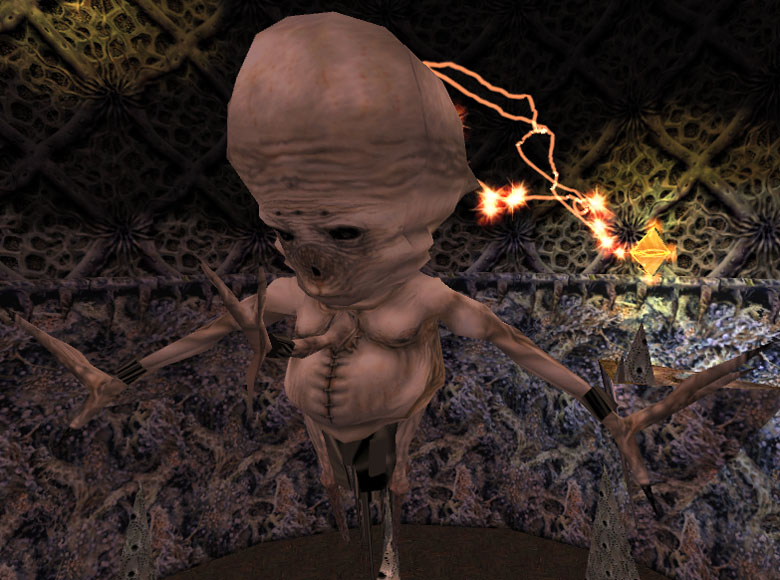GPC100s wrote:
Yes, that's why evidence for sentience is needed or else I must conclude there is no sentience...
Only if somebody tested for it, and couldn't find it- then we should conclude there's no sentience (until evidence to the contrary is presented).
If nobody has tested for it, then the default position should be based on what is more probable: which is determined scientifically by looking at what it's most closely related to, and other factors like that.
If it's most closely related to jellyfish, we'd lean towards no.
If it's most closely related to octopus, we'd lean very strongly towards yes.
Of course, in either case, a real test could change those initial assumptions. But it's reasonable to assume that until it's confirmed or denied by other evidence.
There's never absolutely no evidence, particularly in biology. There's always some reason to believe either for, or against.
Now, if we discovered ghosts/spirits were real or something, then we'd have nothing to base it off of (because we have no knowledge of ghosts/spirits- there's no evolutionary biology of them, no apparent relatives, we don't even know what they're made of, etc.).
Are they just some kind of stain on reality, no more sentient than the red-wine stain on a carpet, only interpreted by the human brain?
Or are they actual sentient beings?
Who knows. We'd need evidence in that case.
If we found ghosts were real, and had no evidence on what they were except they we made of something we didn't understand yet, I think we'd have to just admit we don't know if they're sentient or not.
Flip a coin?
I'd say:
If it's convenient to give them moral consideration, and it doesn't trouble us to do so, we should "just in case". But, we shouldn't go out of our way to do that, until there's some evidence (even a tiny shred of behavioral evidence).
GPC100s wrote:
I mean species.
Species is a somewhat artificial distinction. See Ring Species:
http://en.wikipedia.org/wiki/Ring_species
It's all about % genetic relationship, and in many cases it's a gradual change from area to area.
And it's not even binary whether two animals can breed or not. As we become more distantly related, the probability of successful procreation drops- but there's no clear line at which it drops to zero.
It's still unknown whether humans and Chimpanzees can procreate together, for example.
GPC100s wrote:There is only evidence for the idea of myself coming from my parents, I am sentient, therefore it's only rational to say that sentience must come from them...
Some traits are recessive, and may exist in children, but neither of the parents. Some are mutations, and exist in one child but in no others.
GPC100s wrote:evolution changes things over time on the species level so not everything will become sentient. Also, sometimes abilities evolve independently but reach the same conclusion (co-evolution) so assumptions cannot be made.
Mutation, and genetics change things on the individual level. Traits spread to the species level if they are successful (although may not reach all members of a species).
I think the problem is you're looking at sentience like the product of a single precise gene, like eye color.
It's much more broad and primitive than that. Rudimentary sentience is almost on the order of the existence of eyes themselves- even the Family level is a stretch for variation in sentience (forget species and Genus).
It takes some very extreme conditions to make an animal lose its eyes (like living in a cave, where eyes are useless). Any animal that needs eyes, suffering from such a mutation, would surely die off.
Likewise, it takes extreme conditions for an animal to lose sentience (which basically means losing all of the brain except the equivalent of the brain stem) -- the best known example we have are probably oysters.
Here's an article about oysters and sentience:
http://sentientist.org/2013/05/20/the-e ... d-mussels/
It's written by an ostrovegan. I don't eat oysters, but I can't judge those who do- it seems consistent.
The default scientific consensus on oysters (until we have contradicting evidence) seems to be that they are not sentient.
For all Vertebrates (subphylum Vertebrata) , however, the default position must be sentience unless there is substantial evidence to show otherwise, due to the overwhelming evidence that they're sentient.
To examine oysters a little more, take the Pacific Oyster.
http://en.wikipedia.org/wiki/Pacific_oyster
Species: C. gigas (probably not sentient)
Genus: Crassostrea (probably not sentient)
Family: Ostreidae (probably not sentient)
Order: Ostreoida (grey area, maybe contains some barely sentient animals)
Class: Bivalvia (grey area, may contain some sentient animals)
Phylum: Mollusca (contains some confirmed sentient beings- e.g. Octopus, squid)
Kingdom: Animalia (contains some confirmed sentient beings- Octopus, squid, Vertebrates)
You have to go up three levels to get to "maybe".
Then finally, at the very broad Phylum level, we at last have confirmed examples of sentience.
Those are distant, distant relatives. Sentience is just not something that toggles on and off at the species level.
Take the common Octopus, as another example:
Species: O. vulgaris (sentient)
Genus: Octopus (sentient)
Family: Octopodidae (sentient)
Order: Octopoda (sentient)
Class: Cephalopoda (Maybe some are not sentient)
Phylum: Mollusca (some are not sentient)
Kingdom: Animalia (some are not sentient)
You have to go up four levels to get to "maybe not sentient"
All evidence we have, and all examples, point to it as a very broad quality. It doesn't vary by species. It's a question that comes down to Class and Phylum, and Order at the most.
If there are two animals in the same Class, and one of them is sentient, then you can bet on good odds that the other one is too. If they're in the same Family, then you can bet the farm.
If they're only in the same Phylum, then maybe or maybe not.
In most cases, sentience is a quality of subphylum or Class.

